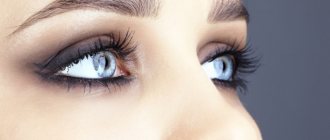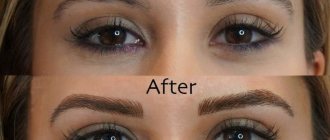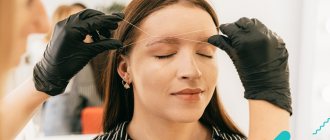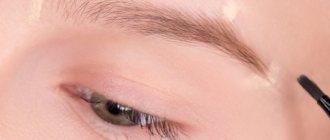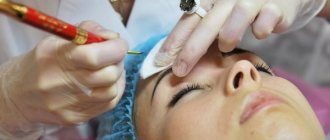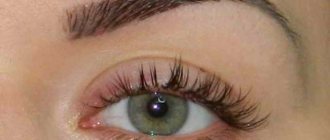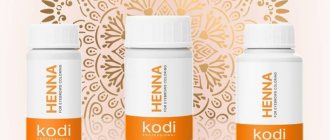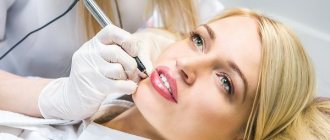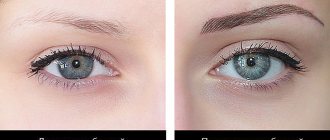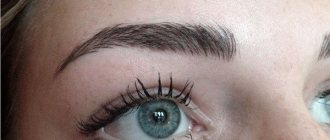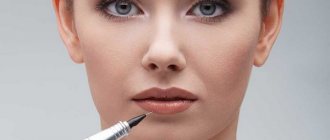Eyebrows determine a girl's appearance. Changing their thickness and color affects perception. Bright and painted shapes have fallen out of favor. The natural look has become fashionable. A new procedure has been developed especially for those with sparse hair – eyebrow microblading.
Microblading is a technique of applying pigment to the eyebrow area.
General concept of eyebrow microblading
This is a technique for shaping eyebrows that makes them look like your own for a long time. Some people call the procedure manual permanent makeup. It differs from hardware in technology and the result obtained. Microblading does not apply an even color to the skin. Specialists make small incisions, and through them the desired area is filled with pigment. They look like hairs, so they seem natural.
Artists from all over the world have been doing microblading for about 10 years. The origins of technology come from China. At first, the technology was intended only for Asians and was different from modern technology. Later, microblading became popular among Europeans. Its founders in Russia were Natalya Krasnoperova and Irina Levchuk.
Indications for the procedure
Girls get microblading for a variety of reasons.
Main indications:
- different eyebrow shapes;
- dissatisfaction with their density, color;
- partial absence of hairs, scars.
Girls do microblading for different eyebrow shapes.
For some, hairs may be completely absent (for example, after chemotherapy).
Main advantages
Using a special device, the master makes small incisions on the skin. As a result, the client receives eyebrows without traces of coloring.
Microblading has many advantages, including the following:
- registration does not take much time;
- the procedure is done with a thin needle and does not cause pain;
- the risk of injury is minimized;
- the skin is quickly renewed;
- You can achieve the desired result after 1 time;
- the technology does not leave swelling.
Having done microblading, you can forget about makeup for a long time.
Essence of the procedure
Eyebrow microblading, which is so popular today, is a manual procedure, not a hardware one, unlike tattooing. The master makes micro-incisions in the skin with a special tool with a micro-blade at the end, after which a coloring pigment is injected there.
The result is permanent hairs, very finely drawn along the initially specified line. They follow the direction of eyebrow growth, thereby achieving the most natural effect. After this procedure, the eyebrows look very natural, without giving away the fact that you just left the salon.
And, of course, the look acquires maximum expressiveness. Moreover, there are several techniques for performing microblading. And you first need to decide what you are deciding on.
origin of name
The term “microblading” is derived from the English words “micro” (translated as “small”) and “blade” (meaning “blade”). Unlike tattooing, microblading is not done using a machine, but a special device with a thin blade - hence the name.
Execution techniques
There are several techniques for applying permanent makeup. Every girl will be able to choose the right one for herself.
Voloskovaya
The master draws individual hairs. This technique is suitable for changing shape and painting empty areas.
The hair technique is suitable for changing the shape of the eyebrows.
Shadow
Light shading is done: the lines that replace hairs are applied indistinctly.
Powder eyebrows
The pigment is shaded in such a way that it gives the impression that the eyebrows are painted with shadows. The strokes that replace the hairs are almost invisible. This type of microblading is suitable for fair-haired girls.
Powder eyebrows are a new permanent coloring technique.
6D
The procedure allows the specialist to apply fine lines to the skin.
European
The master draws lines of the same size. They all look in the same direction. As a result, emphasized eyebrows look well-groomed.
European microblading technology allows you to get thick eyebrows.
Eastern
The master applies strokes of different lengths and directions. Creates a light volume effect.
Rules for choosing a good master
Choosing a master is the most important step. His skills influence the final result. You shouldn't trust the first one you come across.
Portfolio
It speaks of experience and skill. The more examples of work in your portfolio, the lower the risk of getting hired by a non-professional. It is also worth paying attention to whether it contains photographs of work a month after the procedure. They allow you to evaluate the quality of the service.
The portfolio speaks about the experience of the master.
Reviews
In order not to make a mistake in choosing a specialist, it is recommended to read reviews about his work. You can find them on your personal website or on social networks.
If you have any doubts, you can write to past clients of the master. They will have the answer to all your questions.
Diplomas and certificates
Good specialists undergo training. Upon completion, each of them receives a document confirming their level of qualification.
Good specialists have certificates.
Service cost
If a master charges too little for his services, you should think about his level of qualifications. Microblading doesn't have to be cheap.
Compliance with sanitary standards
When entering the office, the first thing you need to pay attention to is order. In addition, it is worth asking how instruments are sterilized.
How to choose a microblading artist
The result of microblading also depends on the individual characteristics of the woman: skin structure, healing speed and, of course, the professionalism of the specialist. The craftsman must have a steady hand to cut the skin to the same depth.
Olga Brukh
If we summarize the recommendations of experts, we get the following algorithm:
- Observe the master’s work as a whole: are your ideas about beauty similar?
- Study reviews and before/after photos: on beauty salon websites, artist pages, on Instagram (hashtags: #microblading, #microbladingeyebrows and others). Ideally, talk personally to girls who have had manual tattooing done by one or another artist, and look at their results.
- When you come for the procedure, pay attention to whether the room is clean and the instruments are sterile. Each client must have his own pigment and his own blade.
- Don't try to save money: it's about your face. High-quality microblading cannot be cheap.
Preparatory activities and compliance with recommendations
The shape and color are chosen by the master together with the client.
The following color options are recommended:
- Blondes – gray or brown tones.
- Red – dark brown and copper.
- For brunettes – gray-black and brown.
Brown eyebrows suit blondes.
Professionals suggest tones slightly darker than the chosen one. This is done because after healing the color becomes less saturated.
In addition, the shade fades over time. The brighter it is initially, the longer it will last. After choosing a color, you need to prepare for the microblading itself.
Before applying the pigment it is recommended:
- Do not take antibiotics: they prevent the paint from taking root.
- Avoid alcohol: it thins the blood. This leads to a deterioration in the final result.
- Refrain from visiting the solarium. Ultraviolet rays make the skin rougher, so the shade may apply unevenly.
- Do not pluck hairs. The specialist will make the correction himself.
- Don't drink coffee.
All advice is important. An experienced specialist will certainly remind you of them.
Indications and contraindications for
Eyebrow microblading is recommended in the following cases:
- the rapid growth of eyebrows and their thickness force their owners to adjust their shape too often;
- sparse, non-growing hairs;
- bald spots;
- congenital asymmetry;
- complete loss of eyebrows (after injury, surgery, chemotherapy, disease);
- pale, dull color that requires regular coloring;
- cosmetic defects (scars, scars);
- unruly hairs that constantly fall out of the general line.
The eyebrow microblading procedure is recommended for everyone who is tired of fixing unruly hairs in one line every day, adjusting the bend every two weeks, and dyeing them regularly. Just one procedure will save you a lot of time for as much as 2 years. However, not everyone will be allowed to do it due to contraindications, which include:
- hormonal instability: periods of puberty, pregnancy, lactation, menstruation, menopause;
- tendency to form keloid scars;
- diabetes;
- blood clotting disorders;
- inflammatory processes;
- increased body temperature;
- skin diseases;
- fresh wounds, scratches on the eyebrows.
You shouldn’t hide the presence of contraindications , no matter how much you want to do eyebrow microblading. First, wait for this condition to pass (pregnancy and lactation do not last forever), get treatment, and then you can enjoy a truly amazing result.
Why is that? Microblading is an innovative procedure that is just being introduced into the beauty industry. Accordingly, the same pigments that are injected under the skin have not yet been fully studied.
Research into how they affect pregnancy and breast milk production is ahead. Therefore, during such important periods of your life, it is better to refrain from such a procedure.
How the procedure is performed: main stages and duration
Microblading includes several stages.
Expert consultation
The master tells his clients all the details. The girls look at examples of work, ask questions about pain, results and duration of the effect.
The master can tell you about the result.
Creating a Sketch
A sketch of the new form is made with a special pencil. Taking into account the volume and density, each hair is drawn. The sketch is discussed with the client and adjusted if necessary. The work will be carried out until the desired result is achieved. At the same stage, the paint color is selected.
After this, a final sketch is created, which will later be recreated.
Anesthesia
Although microblading is painless, artists still use painkillers. They are applied around the eyebrow and the client begins to feel numbness in this area. To reduce discomfort, it is recommended to apply the product both before and during the procedure.
Experts use painkillers.
Performing microblading
After the painkiller has taken effect, the pigment is applied. Each hair is drawn out carefully and in exact accordance with the sketch.
At the end of the procedure, the master talks about how to care for your eyebrows after microblading.
Which method is better?
I’ll probably upset you a little by saying that there is no universal criterion for choosing a method. Only an experienced specialist can determine which technique is best for your skin. The general recommendations are:
- the hair method, especially in the Asian technique, looks gorgeous on the face of a dark-skinned beauty with thick skin;
- shading is recommended for ladies with bushy, patchy eyebrows;
- Powder eyebrows are good for blondes.
The recommendations are not universal. If your face falls into the hands of a gifted master, his technique can brighten up imperfections and add zest to your face. Remember that the beauty of the human face is not in clear, even lines, but in the individual combination of features.
With this, let me say goodbye to you. I hope my review helped you find answers to your questions about microblading. Visit my page at any time and bring your friends with you. That's why social networks are created!
Proper eyebrow care after: prohibitions and restrictions
Eyebrows heal within a week after microblading.
Care instructions:
- During the first 24 hours, eyebrows should not be wetted or touched with hands. There may be slight swelling near the application area, which will subside the next day.
- For a week you will have to give up going to the beach, solarium, or sauna. The same rule applies to decorative cosmetics.
- It is better not to peel in the next 14 days.
- If a crust appears, it should not be wetted or torn off. It will dry out and fall off on its own.
You can fully evaluate how the pigment has settled after healing - in a month.
Care products
In order for the results to last for 2 years, you need to carefully care for your eyebrows. Immediately after the procedure, the master applies a healing ointment to the skin. It does not need to be removed within 3 hours. Afterwards you can wash your face with warm water and foam or gel. You can’t dry yourself with a towel; it’s better to blot your face with a napkin.
Healing ointment should be applied to the eyebrows.
To get rid of pain and swelling, Vaseline is applied the first day after washing. This must be done at least 3 times.
The next day, you can wash your face with your usual product, but you must continue to smear your skin with Vaseline. This is done until the crust completely falls off, on average 9 days.
After microblading, small wounds form. To avoid inflammation, it is recommended to wipe them with a chlorhexidine solution. If this is not done, the crust may pull out the pigment and there will be no result. After 3 days, the color becomes bright and the peeling process begins.
The affected area must be constantly moistened. A suitable remedy is Bepanten cream. It is applied to the eyebrows at the first sign of dryness.
Additionally, you can make a mask from an infusion of mint or chamomile with linseed oil. Herbs soothe the skin and promote its restoration.
Powder spraying
The powder method of performing the microblading technique involves soft shading of coloring substances. The use of such a gentle method eliminates the unnaturalness and vulgarity of the result, and allows you to achieve slight darkening in the area of the eyebrow arches. In general, the effect is created as if you drew on your eyebrows with a pencil or tinted them with special shadows.
Hair acquires the necessary thickness, additional volume, becomes brighter and more expressive. This microblading technique is suitable for fair-haired girls and blondes.
Artists often combine powder spraying with other microblading techniques. The combined technique allows you to achieve a more obvious effect, achieve greater saturation and expressiveness.
Duration of effect
The effect lasts 1.5-2 years. The exact period depends on the characteristics of the leather and the quality of the materials used. After this time, the pattern begins to lighten and disappear.
The duration of the effect depends on the characteristics of the skin.
The first correction is done in a month. By this time, the eyebrows have completely healed and the pigment is fully visible. The specialist will clearly see in which places the drawing needs to be corrected. In the next few months, 1 more correction may be needed.
The procedure can be repeated after a year, without waiting for the pigment to disappear completely.
Possible consequences
Eyebrow microblading, before and after photos to prove it, may not always be successful. There is a risk of developing negative consequences both through the fault of the master and the fault of the client. Therefore, it is better to find out about them in advance.
Among the most common reasons due to the fault of the master are the following:
- allergic reaction to an antiseptic, anesthetic or pigment, to avoid this, it is better to get tested for allergy tests;
- the appearance of scars and large scars, which may be due to the individual characteristics of the body or the unscrupulous work of the master;
- rapid washing out of pigment can occur due to a mistake by the master, in the case of using low-quality paint or a small amount of it;
- cessation of hair growth, which is associated with damage to the follicles. This can happen when the needle penetrates too deeply under the skin.
The following consequences arise due to the client's fault:
- swelling of the eyebrows;
- heavy bleeding;
- loss of pigment;
- infectious lesion;
- long healing.
Methods for removing paint if you don’t like the result
In many cases, the result can be corrected by correction, for example by painting on additional hairs.
Laser
The method works based on the principle of selective photoactivation. The laser destroys the dark pigment, and its remains are released through the lymphatic system. You won’t be able to get rid of an unsuccessful result just once. The procedure will have to be repeated at least 1 more time. It is recommended to avoid laser removal if you have infectious diseases, have a strong tan or are too light in color.
The laser procedure must be repeated several times.
Remover
This is a mixture that contains chemicals that destroy the pigment. With its help, you can remove dye of any shade after 1 session. He has almost no flaws. Problems arise only due to the incompetence of the master. Microblading is contraindicated for people suffering from skin diseases.
Masking tattoo
This method is the cheapest and can only be used in extreme cases. Masking tattoo allows you to quickly deal with the problem, but does not last long. After some time, the dark pigment becomes brighter and appears through the body dye.
Folk remedies
If there is no urgent need to get rid of an undesirable result, you can resort to folk remedies. It is important to understand that it will not be possible to completely remove the pigment.
A visit to the solarium will help get rid of the pigment.
Effective methods:
- Visit to the solarium. Ultraviolet radiation has a destructive effect on pigment.
- Compresses and masks. Chamomile, aloe vera, honey, and lemon are suitable for their preparation.
- Scrubs.
- Castor oil.
You can use the products that every person has at home - iodine or brilliant green.
Care
Microblading care consists of the following procedures:
- 3 days after the procedure you need to wash your face with chlorinated water, the next 2 days wash with boiled water;
- a crust may appear on the treated area of skin, which can be treated with Panthenol, but under no circumstances should it be peeled off;
- for speedy healing, you can use regenerating ointments;
- Until the skin has completely healed, eyebrows cannot be painted, and it is also better to refuse cosmetics;
- after 2 weeks the crusts will disappear, and after 3 weeks the skin can be considered healed;
- For a month, it is better to avoid peeling, using scrubs, sunbathing or visiting a solarium.
Comparison with alternative techniques
There are different ways to create beautiful eyebrows. Differences can be traced in almost everything: in the pigments used, the depth of their introduction and the technique of execution.
Tattoo
For tattooing, a chemical pigment is used, which is injected to a depth of 0.8 mm to 1.5 mm. During the procedure, girls experience severe pain. The effect lasts for more than 3 years. Depending on the characteristics of the skin, it can remain for life. Tattooing severely injures the skin because the needle is inserted too deeply.
The tattoo is injected deep into the skin.
Nanospraying
This is one of the safest techniques. The difference between it and microblading is that not small incisions are made on the skin, but small dots. After complete healing, it appears as if the eyebrows were painted with shadows or a pencil.
Permanent makeup
Permanent makeup allows you to create a pattern of the desired size and color on the skin. This can be achieved by introducing dye into the upper layer of the skin. The procedure is carried out using a special machine with a hollow needle. Its disadvantage is that if the device fails, the eyebrow may turn out uneven.
What is microblading and its techniques
Microblading or “embroidery” of eyebrows is a special method of introducing pigment using a manipulator (a special pen or holder for a microblade). Handmade work by a master is the main difference between “embroidery” and classic tattooing. Tattoo performed using a machine.
Today, girls, an experienced master is ready to offer you not just one technique for improving your eyebrows, but at least 5:
- hair method;
- powder spraying;
- 6d - technology;
- shadow technique;
- flaxtap technique.
You often ask what ombre is and what the procedure has to do with microblading. Ombre is a technique of coloring, rather than micropigmentation, in the brow area.
The technique appeared relatively recently, and so far it is one of the top methods of creating an image. And if the beauties of the world are cool towards hairstyles using this technique, eyebrows in the ombre style are a trend today.
The basis of the technique is a gradual change in color:
- at the base there are light hairs;
- at the bending point the color of the edges becomes saturated;
- and towards the temple the tone becomes lighter again.
Moreover, you can do ombre makeup yourself using shadows or henna and basma. But this is a topic for a separate article.
Main contraindications
Before doing microblading, you need to familiarize yourself with the contraindications.
The procedure is prohibited if:
- diabetes mellitus;
- damage to the skin near the eyebrows (microblading can be done after it has completely healed);
- elevated temperature;
- poor blood clotting;
- diseases transmitted through blood (hepatitis, HIV, syphilis, herpes);
- allergies to paint.
The procedure is prohibited if you have diabetes.
To find out if you have an allergy, you need to do a test. Pigment is applied to the skin. If you experience unpleasant sensations, you will have to refuse microblading.
Required tools and materials
Many girls try to master the microblading procedure or become more familiar with the technique of performing it. In particular, many are interested in knowing what tools and products permanent makeup artists use.
Materials and tools for microblading:
- Anesthesia. An anesthetic will help reduce the discomfort that occurs when causing microdamages;
- Needles. They can be beveled, even, double-rowed (to create shade), and are not very expensive;
- Pigments. Relatively expensive materials that are impossible to do without. It is worth buying paints from several manufacturers to choose the most durable pigment;
- Containers, stands, needle holders. Auxiliary tools to make work easier;
- Caring cosmetics. Products that promote rapid healing of the skin after the procedure.
Interesting. In addition, you will need pencils for drawing a sketch, sticks for mixing pigments, a ruler for selecting shapes and a corrector to help eliminate inaccurate strokes.
Negative aspects of microblading
Despite the benefits, microblading also has its downsides.
These include:
- there are many contraindications;
- without the use of anesthesia, the procedure will seem painful;
- You will still have to take care of your eyebrows - moisturize, pluck out excess hairs and make corrections;
- the first days after the procedure you need to limit your activity;
- the cost of the procedure is high;
- if you don’t like the result, it won’t be easy to get rid of it;
- your hair may be damaged.
There is nothing complicated in the procedure, and the result obtained cannot but rejoice. The main thing is to properly care for the treated area.
FAQ
Is it possible to dye eyebrows after the procedure?
Makeup or long-term eyebrow tinting can only be done on completely healed skin, that is, no earlier than three weeks. If you want to use dye on your eyebrows, choose a product with 3% oxide for primary dyeing, and for re-coloring you can use 6% oxide. Coloring with paint allows you to smooth out asymmetry, enhance the shade and eliminate gaps in the eyebrows. It is used to refresh the color of faded microblading.
After microblading, eyebrows can also be colored with henna. But again, not before complete healing occurs. Two to three days before tinting your eyebrows, test the dye for allergies.
Why can't you wet your skin after the procedure?
After the procedure, crusts will form on the eyebrows. If they get wet and fall off prematurely, they will remove some of the pigment, which will affect the result of microblading. If you do get your eyebrows wet, quickly and gently blot them with a napkin or soft cloth.
Why can't you peel off the crusts?
We hope you are not planning to pick your eyebrows, and this question is being asked simply out of curiosity. Any master will tell you that scabs after microblading absolutely cannot be peeled off. Otherwise, you will not only prevent the dye from settling in the application area, but also risk causing an infection or leaving scars.
How to cover up unsuccessful eyebrow microblading?
If the result of the procedure does not meet your expectations, the eyebrows can be corrected with makeup. But this can be done no earlier than the skin has completely recovered.
If you want to reduce the intensity of too bright pigment, take a corrector or concealer. Its shade should match the color of the skin, or be slightly lighter than it. Apply the product to your eyebrows in a thin layer. Use a brow mascara that is a lighter shade than your microblading color. Dye only the hairs with it, otherwise the color will be too dense and without gaps - and the eyebrows will look heavy.
If your microblading has faded and you want to enhance its vibrancy, use an eyebrow product in a shade that suits you. Remember that the base of the brow should be subtle and shaded, but the more intense color should be concentrated in the middle part. Fill in your eyebrows by drawing in the hairs rather than filling them in with a solid color, so your makeup will look airy and natural.
Goodbye. With respect, Nadezhda
